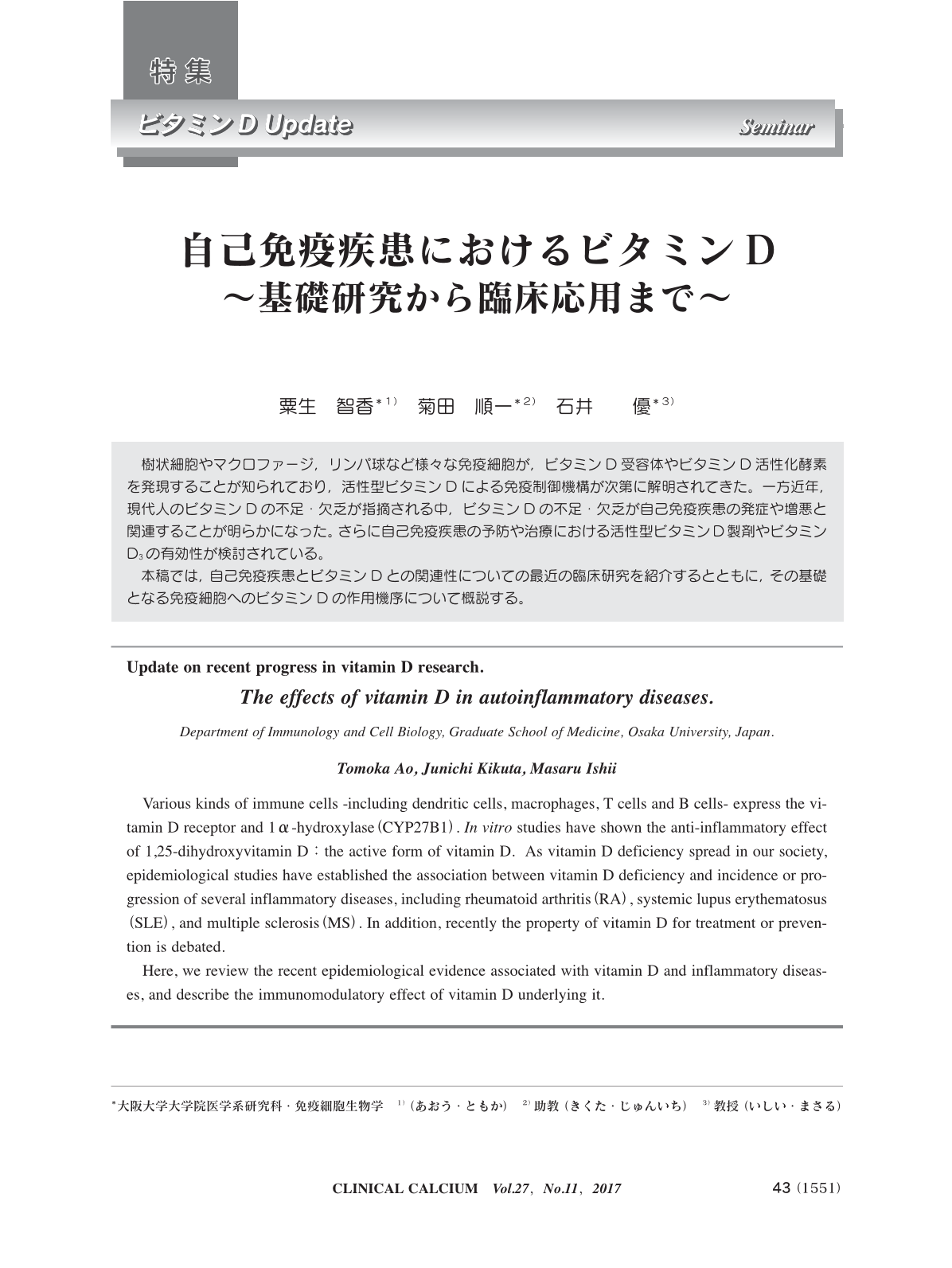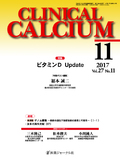Japanese
English
- 有料閲覧
- Abstract 文献概要
- 1ページ目 Look Inside
- 参考文献 Reference
樹状細胞やマクロファージ,リンパ球など様々な免疫細胞が,ビタミンD受容体やビタミンD活性化酵素を発現することが知られており,活性型ビタミンDによる免疫制御機構が次第に解明されてきた。一方近年,現代人のビタミンDの不足・欠乏が指摘される中,ビタミンDの不足・欠乏が自己免疫疾患の発症や増悪と関連することが明らかになった。さらに自己免疫疾患の予防や治療における活性型ビタミンD製剤やビタミンD3の有効性が検討されている。 本稿では,自己免疫疾患とビタミンDとの関連性についての最近の臨床研究を紹介するとともに,その基礎となる免疫細胞へのビタミンDの作用機序について概説する。
Various kinds of immune cells -including dendritic cells, macrophages, T cells and B cells- express the vitamin D receptor and 1α-hydroxylase(CYP27B1). In vitro studies have shown the anti-inflammatory effect of 1,25-dihydroxyvitamin D:the active form of vitamin D. As vitamin D deficiency spread in our society, epidemiological studies have established the association between vitamin D deficiency and incidence or progression of several inflammatory diseases, including rheumatoid arthritis(RA), systemic lupus erythematosus(SLE), and multiple sclerosis(MS). In addition, recently the property of vitamin D for treatment or prevention is debated. Here, we review the recent epidemiological evidence associated with vitamin D and inflammatory diseases, and describe the immunomodulatory effect of vitamin D underlying it.



